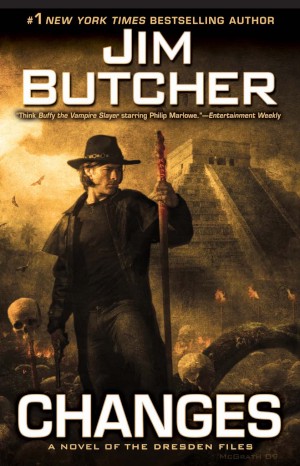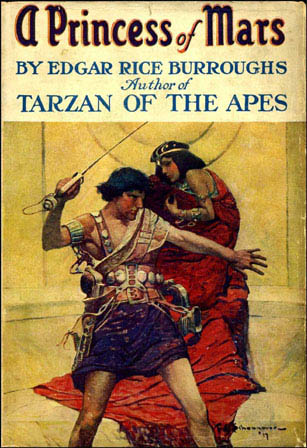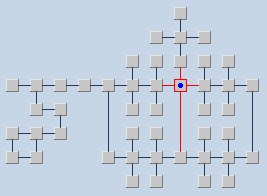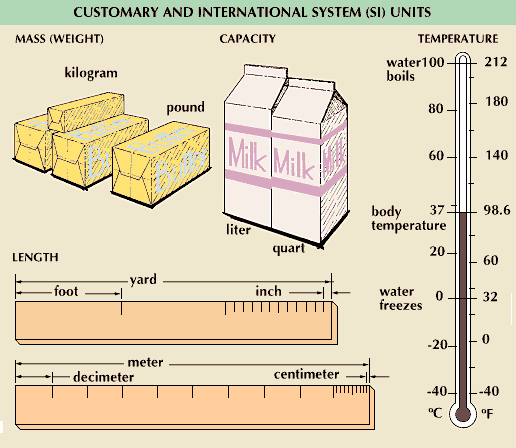 In game theory there is a concept referred to as positive and negative feedback (amongst other things) which is a key design element in any game design. The name is a little deceptive; it's nothing like the sense of the word 'feedback' one usually thinks of, that is, someone saying whether something you did was good or bad. Instead, we're talking about the kind of feedback where something reinforces itself into a vicious or virtuous circle.
In game theory there is a concept referred to as positive and negative feedback (amongst other things) which is a key design element in any game design. The name is a little deceptive; it's nothing like the sense of the word 'feedback' one usually thinks of, that is, someone saying whether something you did was good or bad. Instead, we're talking about the kind of feedback where something reinforces itself into a vicious or virtuous circle.Consider the board game Risk. Every time you gain more territories, you will start to gain more armies in each subsequent turn; this is positive feedback. Each minor victory along the way helps you with more resources or advantages that can be used to increase your chances of victory. And yet, at the same time, you have a larger border and more vulnerabilities, more to defend; these liabilities are negative feedback, meaning that the closer you are to victory, the more chances there are for someone to turn the tables. In Risk, as in most games, the positive and negative are balanced in favor of positive. Progress towards victory keeps making victory more likely, but this goes neither too fast nor too slow, or at least that's the idea. (In my opinion, the positive is just a bit too large, or the negative too small, because once someone gets a lead in Risk the chances of turning the tables drops too fast. Ideally, you want it to always be possible, so the losers don't just give up, but not too easy, so there's a motivation to try for intermediate victories.)
Note that this refers only to the mechanical advantages and disadvantages in the game itself. Any game always has a sort of equivalent to positive feedback built in which can't be easily changed (and probably shouldn't), which one might call "winning momentum". The most visible element of this is morale: when you're winning, it gives you more enthusiasm which makes you try harder, and when you fall behind, it can be dispiriting.
This factor is magnified many times over in a multiplayer game. The winning team attracts more participation and more players since a lot of people like to be on the winning team, or will play less on characters on the losing team. More players in turn means that the amount of work that's there to be done gets spread out more, which helps make everyone feel less strained by obligations, and able to spend more of their time doing things they want to do, rather than things they have to do, which further improves morale, creating another virtuous circle. The only thing that tends to break it is that some small subset of people will find progressively more assured victory boring, but this subset is much, much smaller than people generally believe; in fact, most people who would classify themselves amongst that group aren't really in it, at least not until the certainty of victory reaches pathological levels.
Amongst the many, many very good design decisions of how Lusternia is set up, there are a few bad ones, and an excess of positive feedback and paucity of negative feedback is one of them. Even if the game had no mechanical feedback at all, the "winning momentum" factor would be a very strong one, but the game is just piled high with positive feedback, where examples of negative feedback are very, very few. And over time the balance has tilted to more and more positive feedback.
This seems to come from the understandable, and not incorrect, idea that people should feel rewarded, not punished, for their victories. But that's oversimplifying. Negative feedback is part of the design; having some of it to balance some positive feedback doesn't mean you're not rewarded, it just helps to keep the reward in check. Plus negative feedback doesn't have to feel like a punishment at all: for instance, when it takes the form of "more stuff you have to do" (more obligations), it's generally not taken emotionally as a punishment, even though it still can contribute to cancelling out some of the positive feedback, getting you closer to the goal where the net feedback is positive but not nearly so overwhelmingly.
And the need for it to be less overwhelming is far more present in an indefinite-term game like Lusternia than it is in a game with a definite ending like Risk. If, in Risk, getting a lead of a certain amount makes you assured of a win, people will still play because two hours later the game board is wiped clean and everyone gets another chance. In a game that never resets, a cycle of never-ending, strong positive feedback means that the only things that can change the balance of power are essentially random factors outside anyone's influence, like important players quitting or changing sides. (Historically, that's the only one that has ever done it in Lusternia, though it's at least theoretically possible that game mechanic changes could do it too.)
One example of negative feedback in Lusternia is how villages cost more power to guard than they produce. But this one is very inconsistent. Many organizations have little need to guard their villages at all: if you own both sides of a conflict, don't care about the conflict, or are in a position of power so great no one would dare to raid your villages, and none of your opposition are of the government type that gives them reason to break in in a way that you need to prevent, a village becomes positive net power, whereas if you're unlucky enough to get stuck with one of the few badly designed villages where you have to place guards in two or three places, it becomes so insanely negative net power that no one would even bother to guard them. (Why they refuse to make the very easy fix to those is beyond me.)
However, that's one of only very few examples. Far more are overwhelmingly positive. Village feelings, though they have done many good things, have created another one: controlling a village makes it easy to build up its feelings for you and prevent everyone else from doing the same, which makes it almost certain that a lead in villages will be maintained, and being shut out keeps you shut out. This particular one would be trivially easy to fix, too: just make it so village feelings slowly drain away, but faster the more other villages you have, so you have to spend more time maintaining them, and when you get too many villages, the rate becomes impossible to keep up with. (You'd have to recalibrate feelings to be gained slightly faster to make up for the drain around a baseline of 2-3 villages, though, but that's also easy.)
Unfortunately, I don't see this issue being taken seriously. Worse yet, though I'm still saying the same things now that I said two years ago when my organization was on top and riding a wave of positive feedback, when I say it now, people tend to dismiss it as sour grapes, because whoever is currently the loser always complains like that, and so many people are hypocritical that everyone tends to assume it from everyone else.
The current imbalance is far longer in duration (already fully a quarter of Lusternia's entire lifespan), and far greater in disparity, than any previous one. Yet people still brush it off as "this has happened before" and thus conclude that a change is both inevitable and imminent. It is, in some sense, inevitable, statistically. But every passing day makes the amount of time before it will happen become longer. But all we can do is wait for it. And keep hoping that the administration will reconsider their attitude towards positive and negative feedback... or happen to slip some useful, effective negative feedback in by accident.
























 RealTime and RTC
RealTime and RTC Prism
Prism Uncreated
Uncreated Bloodweavers
Bloodweavers Foulspawner's Legacy
Foulspawner's Legacy Lusternia
Lusternia